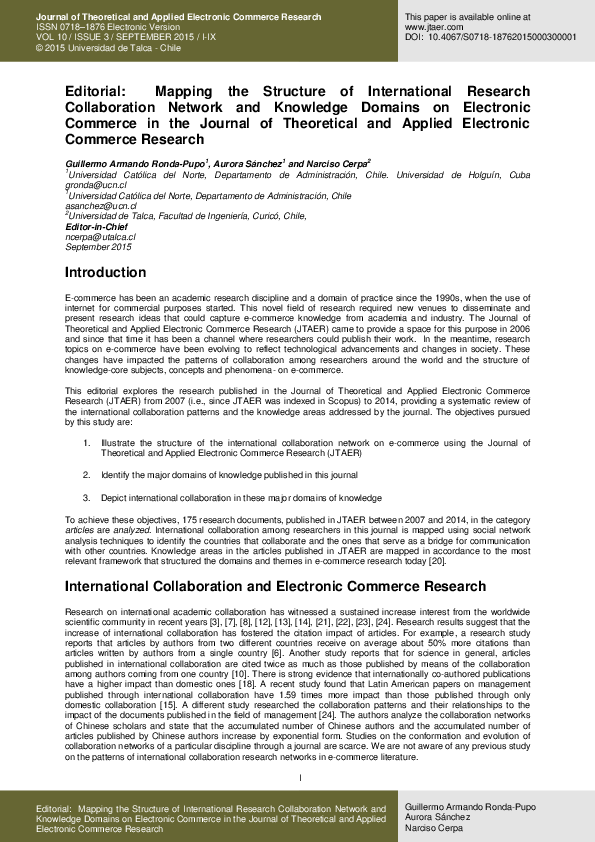Technology and Innovation: Analyzing the Heterogeneity of the Hotel Guests’ Behavior
IF 5.1
3区 管理学
Q1 BUSINESS
Journal of Theoretical and Applied Electronic Commerce Research
Pub Date : 2024-06-17
DOI:10.3390/jtaer19020078
引用次数: 0
Abstract
The study intends to identify and analyze different consumer segments. For this purpose, we examine why customers turn to electronic word-of-mouth (eWOM) before making a purchase and how they perceive a hotel’s information and communication technology (ICT) and relational innovation after making a purchase. The objective was empirically tested with data from a panel of consumers who stayed at hotels during the post-pandemic recovery period in Spain. In total, 393 valid questionnaires were obtained. The estimation of a finite mix model was applied to identify guest profiles. Estimation identified three guest profiles where the perceptions of the hotel’s relational innovation and ICT present a high discriminant power in the first two segments. Moreover, compared to the second segment, the first group is characterized by the low impact level of these variables. On the other hand, the motivation to consult eWOM in the prebooking stage significantly influences all three groups; however, the guests of the third segment present less motivation than the rest. Hotel managers may consider ICT, relational innovation, and eWOM factors when segmenting consumers. Understanding this would enhance the company’s service delivery and the hotel’s competitiveness. The contribution of this study lies in considering ICT, relational innovation, and eWOM as novel factors that help identify different guest profiles.技术与创新:分析酒店客人行为的异质性
本研究旨在识别和分析不同的消费者群体。为此,我们研究了顾客在购买前求助于电子口碑(eWOM)的原因,以及顾客在购买后如何看待酒店的信息与通信技术(ICT)和关系创新。我们利用西班牙大流行病后恢复期间入住酒店的消费者小组的数据,对目标进行了实证检验。总共获得了 393 份有效问卷。通过对有限组合模型的估算,确定了客人的特征。估算结果显示,在前两个细分市场中,对酒店关系创新和信息与通信技术的感知具有较高的判别能力。此外,与第二组相比,第一组的特点是这些变量的影响程度较低。另一方面,在预订前阶段咨询电子口碑的动机对所有三个组别都有显著影响;但是,第三组客人的动机低于其他组别。酒店管理者在细分消费者时可以考虑信息和通信技术、关系创新和网络口碑因素。了解这一点将提高公司的服务质量和酒店的竞争力。本研究的贡献在于将信息与通信技术、关系创新和网络口碑视为有助于识别不同顾客特征的新因素。
本文章由计算机程序翻译,如有差异,请以英文原文为准。
求助全文
约1分钟内获得全文
求助全文
来源期刊
CiteScore
9.50
自引率
3.60%
发文量
67
期刊介绍:
The Journal of Theoretical and Applied Electronic Commerce Research (JTAER) has been created to allow researchers, academicians and other professionals an agile and flexible channel of communication in which to share and debate new ideas and emerging technologies concerned with this rapidly evolving field. Business practices, social, cultural and legal concerns, personal privacy and security, communications technologies, mobile connectivity are among the important elements of electronic commerce and are becoming ever more relevant in everyday life. JTAER will assist in extending and improving the use of electronic commerce for the benefit of our society.

 求助内容:
求助内容: 应助结果提醒方式:
应助结果提醒方式:


